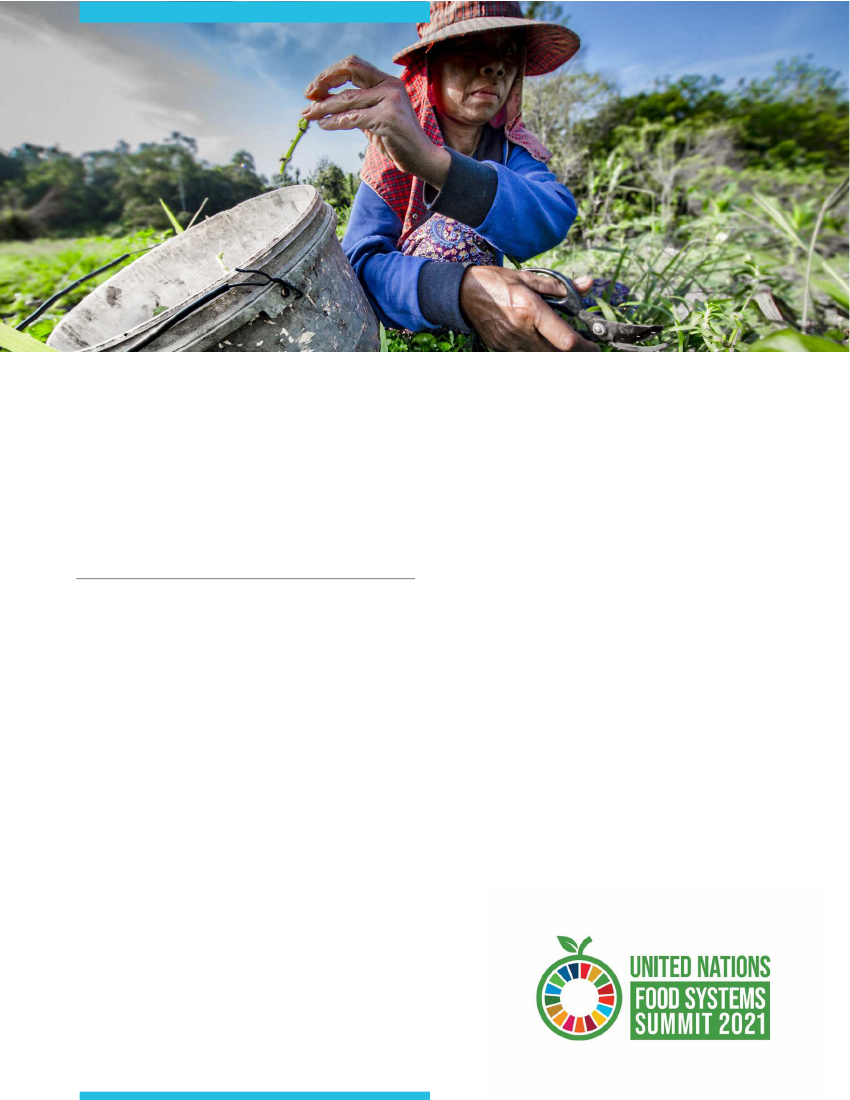
@IFAD/Francesco Cabras
UN FOOD SYSTEMS SUMMIT 2021
“Transforming food systems is crucial for delivering all the Sustainable Development Goals.”
––
ANTÓNIO GUTERRES, UN Secretary-General
Context
Rich or poor, young or old: Everyone needs to eat.
Nutritious and safe food allows for healthy and
productive lives. It’s as important as the air we breathe
and the water we drink.
The term “food system” refers to the constellation of
activities involved in producing, processing,
transporting and consuming food. Food systems
touch every aspect of human existence. The health of
our food systems profoundly affects the health of our
bodies, as well as the health of our environment, our
economies and our cultures. When they function well,
food systems have the power to bring us together as
families, communities and nations.
But too many of the world’s food systems are fragile,
unexamined, and vulnerable to collapse, as millions of
people around the globe experienced first-hand
during the COVID-19 crisis. When our food systems fail,
the resulting disorder threatens our education, health
and economy, as well as human rights, peace and
security. As in so many cases, those who are already
poor or marginalized are the most vulnerable. Some
countries and regions face unique circumstances,
which can increase their vulnerability.
In 2021, UN Secretary-General António Guterres will
convene a Food Systems Summit as part of the
Decade of Action to achieve the Sustainable
Development Goals (SDGs) by 2030. With only 10 years
remaining, many of the 17 SDGs remain far out of
reach. In many cases, unsafe or unsustainable food
systems are part of the problem.
The UN Food Systems Summit will serve as a turning
point in the world’s journey to achieve all the SDGs.
We know what we need to do to get back on track:
Scientists agree that transforming our food systems is
among the most powerful ways to change course and
realize the vision of the 2030 Agenda. Rebuilding the
food systems of the world will also enable us to answer
the UN Secretary-General’s call to “build back better”
from COVID-19. We are all part of the food system, and
so we all must come together to bring about the
transformation that the world needs.